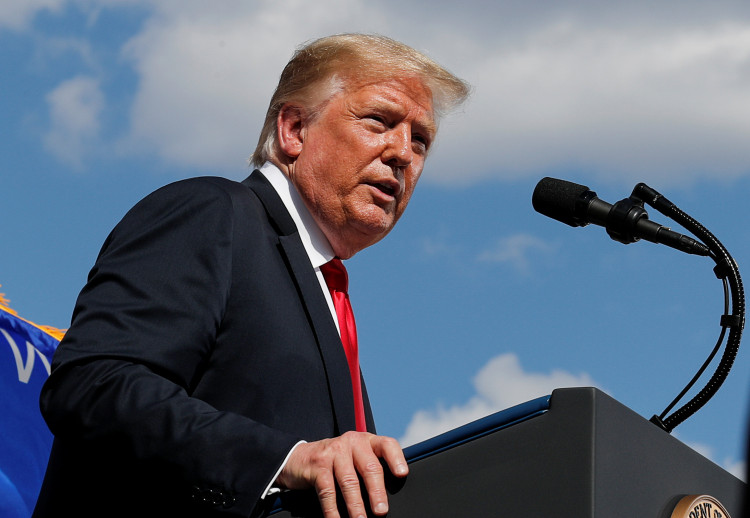Former National Security Adviser H.R. McMaster has painted a vivid and critical portrait of Donald Trump's presidency in his latest book, "At War with Ourselves," and confirmed that he would not serve in a hypothetical second Trump administration. McMaster's comments, made in a recent CNN interview, highlight a significant rift between the former adviser and the ex-president, reflecting the tumultuous nature of their past working relationship.
McMaster, who served in the Trump White House from February 2017 to April 2018, described his tenure as a "privilege," but also detailed a series of challenges and frustrations. "I'm kind of used up with Donald Trump," McMaster told CNN's Anderson Cooper. "No, I think, Anderson, I will work in any administration where I feel like I can make a difference, but I'm kind of used up with Donald Trump."
His new book, set for release on Tuesday, expands on these sentiments, depicting Trump as an insecure and often disruptive leader whose need for constant flattery made him vulnerable to manipulation by foreign adversaries. McMaster's narrative offers a blend of criticism and reluctant admiration, acknowledging Trump's strategic insights on issues like terrorism and China, while also condemning his erratic decision-making and strained relationships with key officials.
The book reveals that McMaster's tenure was marked by internal conflicts and a chaotic work environment. He criticizes former Secretary of State Rex Tillerson and former Defense Secretary James Mattis for their resistance to Trump's unconventional approach. "Tillerson and Mattis were not just confident in themselves; they also lacked confidence in a president they regarded as impulsive, erratic, and dangerous to the republic," McMaster writes.
McMaster's reflections offer a detailed account of the difficulties he faced, including a high turnover rate among senior staff and a pervasive sense of dysfunction within the administration. "Living at the base of an active volcano was an apt metaphor for serving in the Trump White House," he writes. McMaster describes his growing frustration with the constant drama and conflict that characterized his time in office.
In his book, McMaster also explores Trump's interactions with international leaders, including Russian President Vladimir Putin. He contends that Putin exploited Trump's insecurities to further his own strategic interests. "Putin, a ruthless former KGB operator, played to Trump's ego and insecurities with flattery," McMaster writes. He recounts how Trump's eagerness for praise led him to overlook critical warnings about Putin's intentions.
Despite these criticisms, McMaster maintains a tone of respect for the office and expresses hope that his book will inspire future public servants. "One of the themes in 'At War with Ourselves' is, 'heck, yeah, we are at war with ourselves,'" McMaster said. He added that he hopes young people will feel compelled to serve their country despite the challenges and complexities involved.
The former adviser's decision to decline future service in a potential second Trump administration underscores the profound impact of his experiences in the White House. McMaster's reluctance to reengage with Trump highlights the ongoing debate within the GOP about the former president's leadership and the direction of the party moving forward.
The Trump campaign has dismissed McMaster's account as a collection of "untrue stories" intended to generate book sales. Meanwhile, McMaster's former colleagues, including John Kelly, have acknowledged the difficulty of his role while respecting his service. As the political landscape continues to evolve, McMaster's reflections provide a critical lens through which to view Trump's presidency and its implications for future governance.






